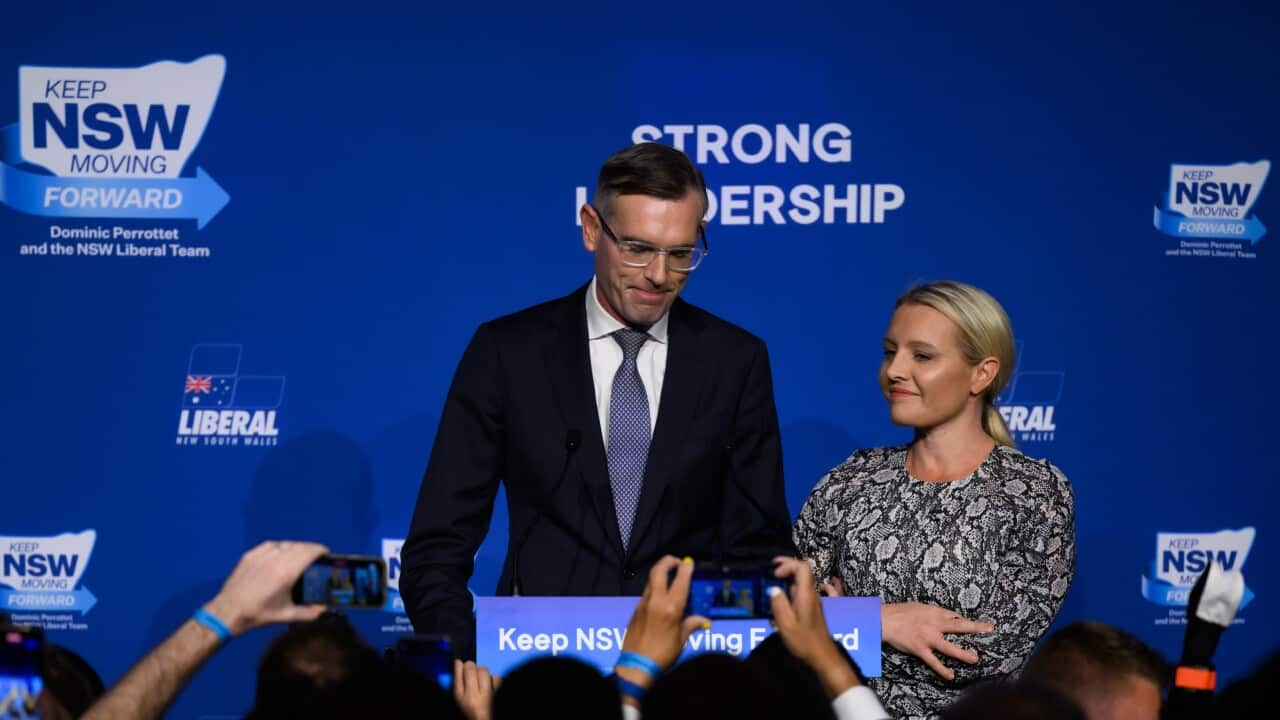Key points
- Labor governments are now in place across every mainland state and territory.
- Wall-to-wall Labor may increase cohesion and make it easier for the states and territories to strike deals with Canberra.
- On the flip side, a lack of competition and debate can be stifling and unhealthy.
Labor governments are now in place across every mainland state and territory after premier-elect on Saturday, with Tasmania the Liberal outlier.
Experts say while this may seem like a victory for Australians desperate for change after tough years of pandemic, fires and floods, and low wages growth, there are both pros and cons to Canberra and the states sharing the same political alignment.
So now Labor rules the mainland, what could this mean for the country?
There could be faster action on certain policies
The red-wash across mainland Australia may mean some policies get through quicker because there will be less party politics at play, experts say.
"Having so many Labor governments represented in the National Cabinet and in the Lodge will certainly help increase cohesion and perhaps focus on some of those big national issues," Richard Denniss, executive director of progressive think tank The Australia Institute, told SBS News.
Mr Denniss said Australians could see "a genuine desire" to resolve tensions between federal and state governments over responsibility relating to school and hospital funding, or how tax revenue collected by the Commonwealth is divided among the states, for example.
"It'll be harder for everyone to blame each other for the inability to get these things resolved. So I think there's a real opportunity there."
Former Australian Labor Party strategist Kosmos Samaras, now director of strategy and campaigns at bipartisan Redbridge Group, believes less in-fighting between the states and the Commonwealth could lead to more progressive policy action, particularly around climate.
"From a working relationship perspective, it's going to be a lot better for both levels of government. I think we're going to get fairly rapid movement and big policy shifts around climate and a transition to sustainable energy," he told SBS News.
It will be harder to explain a lack of action
But while there are policy benefits for having wall-to-wall Labor premiers and a Labor prime minister, there are "political risks" as well, Mr Denniss warns.
It will now be harder for Labor to blame the Liberals for a lack of climate action, he says.
"While there's a huge opportunity for state and federal Labor governments to do a lot more on climate, having so many Labor premiers in the mining states and also in Canberra, it's going to be very hard for Labor to explain to voters why they can't do more to stop fossil fuel expansion."
Disagreements within the party could be damaging
Premiers and prime ministers inevitably disagree, and disagreements within parties can be harder to explain.
In recent weeks we've seen Labor premiers in Victoria, South Australia and Queensland disagree with the Albanese government, and each other, over energy, health funding and the AUKUS agreement.
"There are inevitably differences between what a state premier thinks is good for their state, and what a prime minister thinks is good for the nation," Mr Denniss said.

Prime Minister Anthony Albanese introduces Labor leader and Premier elect Chris Minns. Source: AAP / AAP
"The state premiers will have to work a bit harder to convince the voters that they're putting the pressure on the federal government to look after their state."
But Mr Samaras believes we are unlikely to see too much in-fighting.
"Those in government will try not to waste too much time and will try to get as much work done as possible."
Re-election could be difficult
The NSW election result could place an additional pressure on Prime Minister Anthony Albanese in 2025.
"Voters like to take out a bit of insurance, and many voters don't want to put too much power in the hands of one government or one party," Mr Denniss said.
"So one party is in power at the state level, the argument goes that some people are less likely to support that party at the national level.
"Whether that will make it harder for Anthony Albanese in 2025, we don't know."
A red-wash can make it harder for Labor premiers to get re-elected, a trend Australia has seen play out in the past.
When John Howard was elected prime minister in 1996, every state and territory except NSW had a Liberal government, but by the time he left office, every single state and territory was Labor.

When John Howard was elected prime minister in 1996, every state and territory except NSW had a Liberal government. Source: AAP / AAP
The political pendulum could begin to shift back to the Liberals as early as 2024, with state elections are due in Queensland.
But this may not be a pattern Australians will see replicated across the rest of the country, Mr Samaras says.
"The Labor government has already done three terms in Queensland, and it's an incredibly difficult political demography for Labor, and has been for a very long time. So I think we'll probably see a change in government next time we go to the polls."
Australia may suffer from a lack of diversity
While wall-to-wall Labor governments may make it easier for the states and territories to strike deals, a lack of competition and debate can be stifling and unhealthy, Mr Samaras adds.
"Democratic tension is always a good thing. The Labor side of politics and the Liberal side of politics are always at their best when they are pressured to perform well."
But Mr Denniss said while Australians like a bit of diversity, the real test of what people want is in how they vote.
"We've seen a big swing to Labor in the NSW election so I think the old adage that people don't want to see the same party representing them at two levels has clearly been repudiated."




